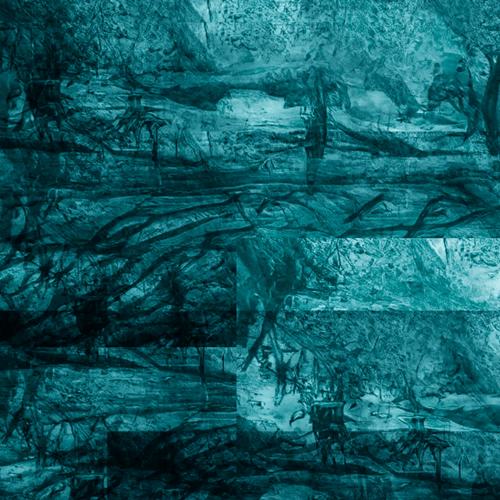
The Climate Imaginary Reader examines the possibilities of imagination in a broader context of the climate crisis. The goal of the Climate Imaginary Reader is to provide more local answers to global challenges. Tackling the root causes of the climate crisis would require systemic change on an international scale, but the global phenomenon is built on local acts and experiences, the assessment of which can help us understand the ecosystem’s ultimatum––including the current Covid-19 pandemic that just entered its second wave––and activate the radical social imaginary necessary to devise answers to the challenge.
The invited authors––young scholars and artists––come from different scholarly backgrounds. The points of view showcased in this issue combine the analytic tools of the fields of philosophy, political philosophy, eco-criticism, eco-feminism, critical media theory, environmental studies, political economics. They ascribe to the principles of interdisciplinarity and interconnectedness as practices which underpin a radical imagination. It cannot be foreseen what kinds of new normalities will be born and how the status quo adapts to the new circumstances after the COVID-19 pandemic, nevertheless the analyses of the Climate Imaginary Reader are dedicated to more sustainable visions of the future serving the creation of more equal societal and environmental relations.
I. Amidst the globally intensifying COVID-19 situation, “The World as Contingent Space” written by poet and artist Anna Zilahi, introduces the idea of contingency as a critique to modernist thought’s preoccupation with security and control. Based on contemporary French philosopher Quentin Meillassoux’s claims, the article examines how the pandemic reveals the unpredictability of life and the interdependency of human civilization within the global ecosystem.
II. In “The Politics of Susceptibility”, drawing upon the notion of unpredictability, post-doctoral researcher in political philosophy, Héla Hecker, examines how the oppressive attitude towards nature is determined by the causal, productivist structures of modernism intertwined with industrial capitalism, and how different kinds of activities could lead us out of this self-perpetuating relationality according to the philosophy of Hannah Arendt.
III. PhD researcher Réka Patrícia Gál explores the ideology behind the escapist project of space colonization. Through the feminist critique of the illusion of exiting the human body’s earth-bound dependent materiality, the essay “Climate Change, COVID-19, and the Space Cabin: A Politics of Care in the Shadow of Space Colonization” points towards a different kind of relationality based on Indigenous and feminist ethics of care, predicated upon the societal experience of the pandemic.
IV. Hungary has a long tradition of being locked between super powers. In terms of its energy imaginary, the country’s position has been shaped by the neighbouring hegemons. In his analysis, “Between Two Giants: Materialism and the Social Imaginary in the Energy (Transitions) of Hungary”, PhD candidate John Szabo discusses how the Soviet Union shaped Hungary’s fossil-fuel and nuclear based energy imaginary and the role the European Union currently plays in the visions linked to the energy transition.
V. Based on three case studies conducted in the Hungarian countryside, “Beyond the Postcard: an Ecocritical Inquiry on Images of Nature” written by visual artist Rita Süveges analyzes the cultural topoi dominating how the images of what we call a landscape are constructed. By the application of eco-critical methodology on the instances of the Gánt Bauxite Mine, the Kékes Forest Reserve and the Sand Dunes of Fülöpháza, the text also highlights how these tropes shape society’s relation to nature.
VI. Márk Losoncz’s “The Long March through Social Imagination” deconstructs what imagination means in the history of political thought and, despite the disciplinary dismissal, how the proneness and curiosity for secrecy shaped modernity, with special attention to the historical period after the Second World War. Through the examples of intelligence services, the deep state and consequently thriving bogus conspiracy theories, the Vojvodina-based philosopher calls for an ecological imaginary in his philosophical-historical textual pilgrimage.
Issue #9 is edited by Rita Süveges and Anna Zilahi, members of the xtro realm artist group. Xtro realm was founded in 2017 with the ambition to thematize the Anthropocene as well as the ecological and climate crises in Hungary, while seeking alternative and more local perspectives on these challenges. The process-oriented art group organized numerous lectures, field trips, reading sessions, discussions and exhibitions.The Climate Imaginary Reader is to serve as a theoretical compass for the upcoming exhibition titled ACLIM! organized by xtro realm as a part of the 3rd OFF-Biennale Budapest planned to open in April 2021.
Special thanks to John Szabo, Héla Hecker and Márk Losoncz for the translations and Katarina Manojlović for the copy-editing.
.
Contributors: Réka Patrícia Gál, Héla Hecker, Márk Losoncz, Rita Süveges,
John Szabo, Anna Zilahi
Editors: Rita Süveges & Anna Zilahi
.
Support: tranzit.hu, mezosfera.org, Erste Foundation, Risk Change Program